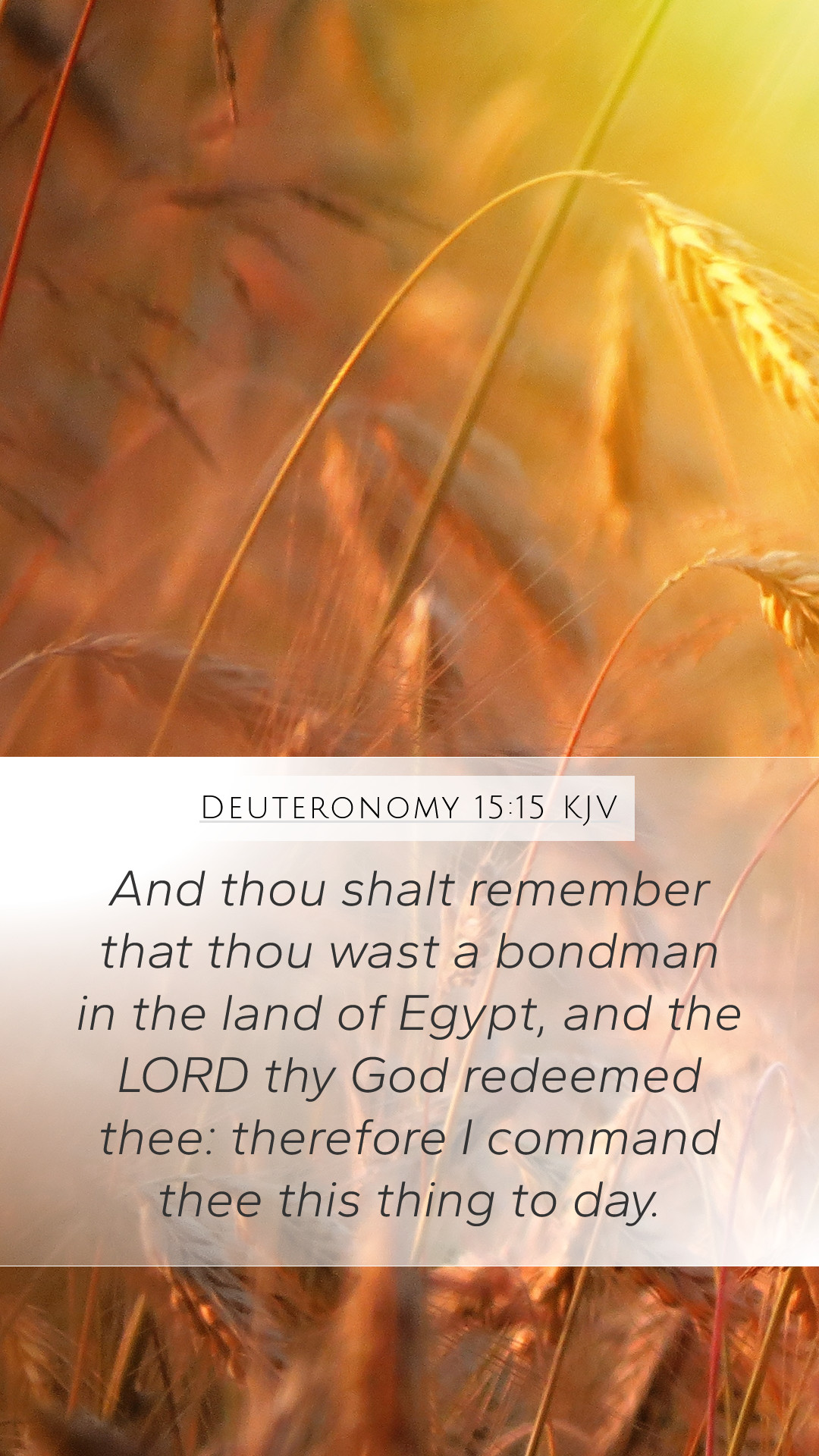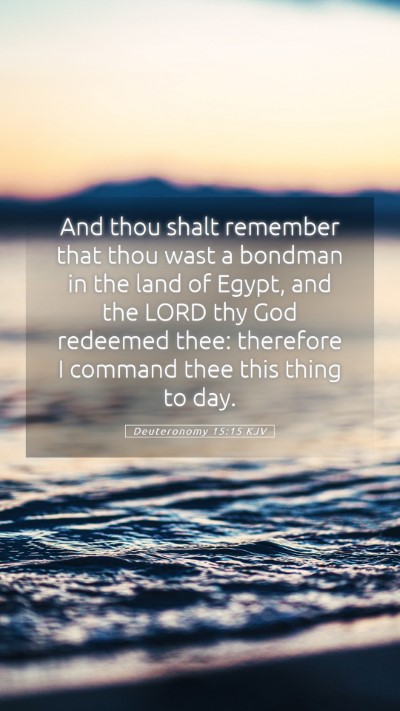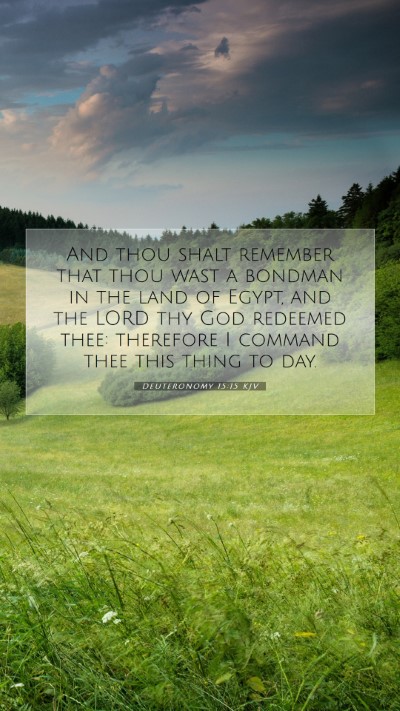Understanding Deuteronomy 15:15: A Comprehensive Bible Verse Analysis
Deuteronomy 15:15 states, "And you shall remember that you were a slave in the land of Egypt, and the Lord your God redeemed you; therefore I command you this thing today." This verse is a powerful reminder of God's deliverance and has profound implications for understanding generosity, compassion, and moral responsibility within the context of biblical teachings.
Bible Verse Commentary: Insights from Public Domain Commentaries
To gain a deeper understanding of this verse, we will combine insights from revered public domain commentaries like those of Matthew Henry, Albert Barnes, and Adam Clarke.
Context and Historical Background
Deuteronomy is a book that presents the laws and teachings that the Israelites were to follow as they prepared to enter the Promised Land. The mention of Egypt refers to the Israelites' slavery, which serves as a backdrop for God’s covenant and mercies. The historical context illustrates the theme of redemption and the importance of remembering one’s past to cultivate gratitude and compassion.
Matthew Henry's Commentary
Matthew Henry emphasizes the significance of remembrance in this verse. He notes that remembering one's bondage and subsequent liberation by God is essential for cultivating humility and a spirit of generosity towards others. By recalling their past, the Israelites are encouraged to act with compassion, particularly in the treatment of those who are less fortunate.
Albert Barnes' Interpretation
Albert Barnes highlights that the command to remember is a motivation for ethical behavior. He suggests that remembrance of past suffering should inspire the Israelites to respond positively to the needs of the poor and enslaved among them. God's redemption serves as the foundation for their duty towards others, reinforcing the principle that those who have received mercy should likewise show mercy.
Adam Clarke's Exegesis
Adam Clarke elaborates on the theological implications of this verse. He presents the idea that divine redemption not only frees people from physical bondage but also establishes a duty to reflect that grace in their actions. Clarke points out that the command given by God is not mere obligation; it is a reminder of their identity as a redeemed people, which shapes their community life and relationships.
Applications and Relevance
This verse serves as a guide for how believers today can apply biblical values of compassion and generosity in their lives. As we understanding Scripture in its historical context, we see the relevance of Deuteronomy 15:15 in establishing principles of social justice and responsibility toward the marginalized.
Significance in Modern Life
- Cultivating Gratefulness: Reflecting on our past, much like the Israelites, helps foster a sense of gratitude and responsibility.
- Encouraging Generosity: Our understanding of having been recipients of grace can motivate acts of kindness and support within our communities.
- Promoting Social Justice: Recognizing past injustices can guide us in advocating for the oppressed and ensuring their needs are met.
Related Bible Cross References
- Exodus 20:2: "I am the Lord your God, who brought you out of the land of Egypt, out of the house of bondage."
- Leviticus 25:17: "You shall not wrong one another, but you shall fear your God, for I am the Lord your God."
- Luke 6:36: "Be merciful, even as your Father is merciful."
Conclusion
Deuteronomy 15:15 serves as a foundational scripture for understanding the importance of remembrance and moral obligation in light of redemption. By analyzing its meaning through extensive commentary and connecting its themes to our current societal needs, believers can find direction in their faith. Whether it be through Bible study groups, online Bible study resources, or personal reflection, this verse invites deep engagement and practical application in our lives.


